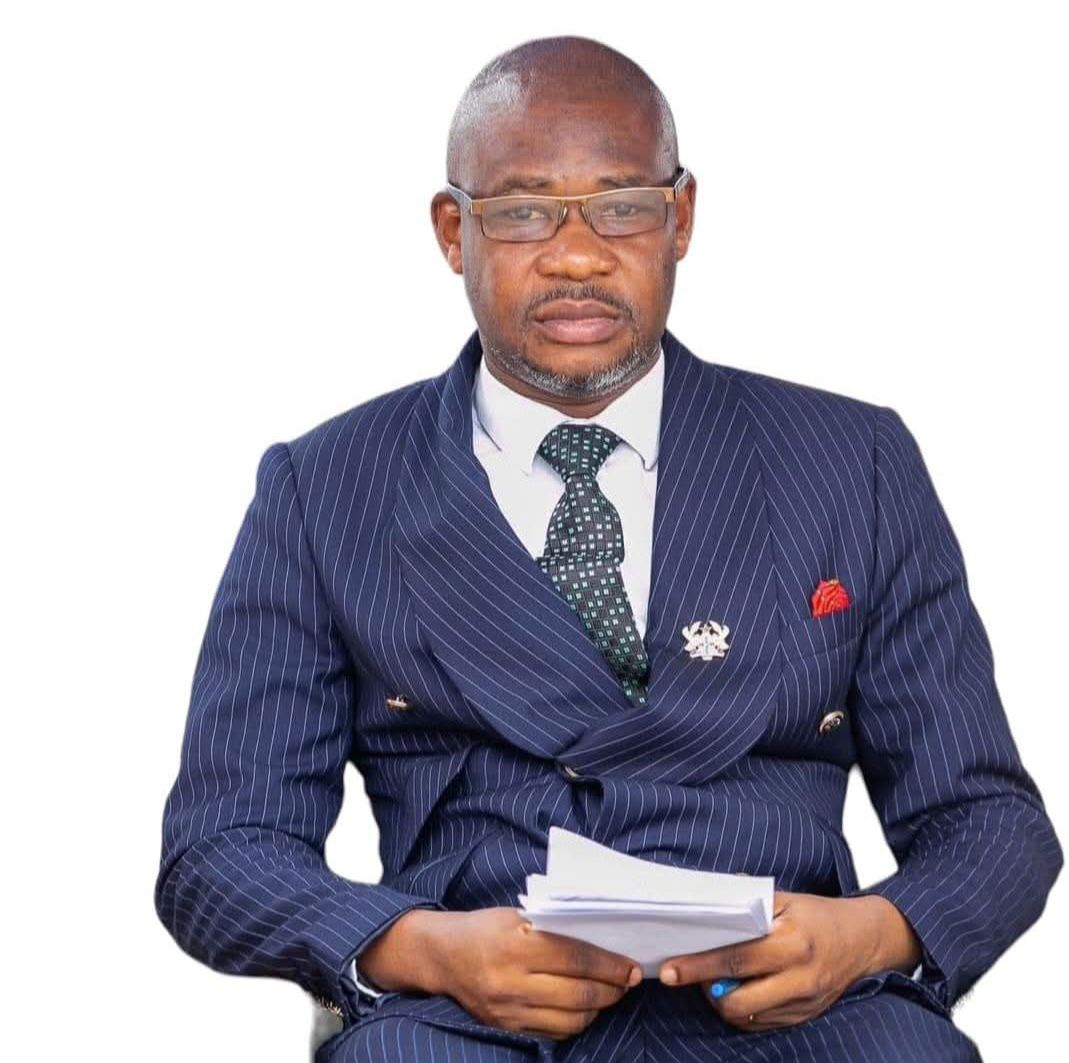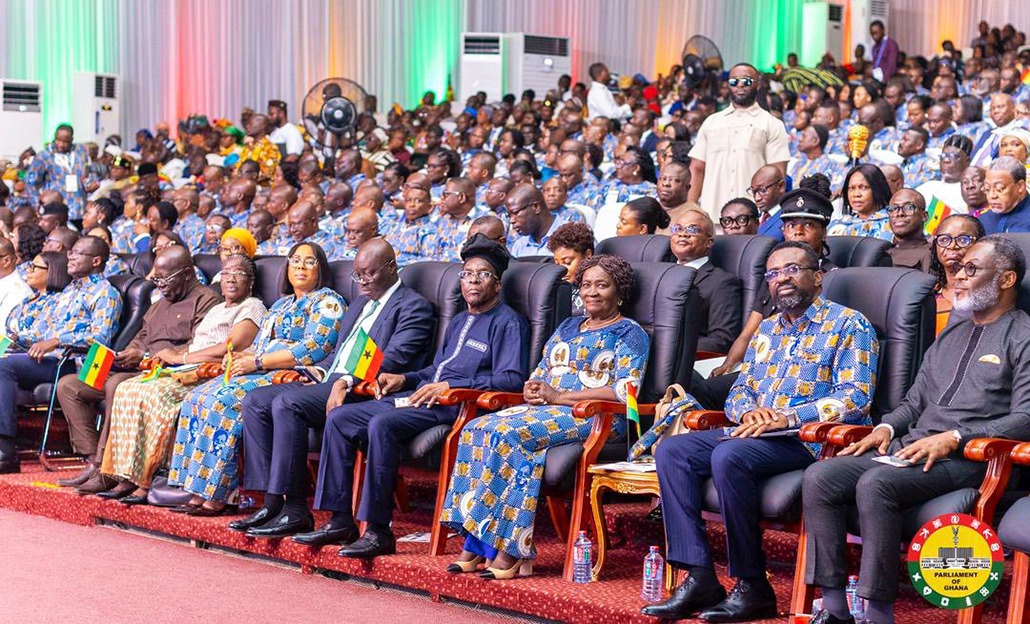
By Rev’d Fiifi Afenyi-Donkor
At a recent wedding rehearsal in Accra, an incidence sparked deep theological reflection. As the officiating priest guided the couple through the vows, “for better, for worse, for richer, for poorer”, the bride hesitated. “Do we really have to say the negative parts?” she asked. “We believe in ‘for better, for better’ and ‘for richer, for richer.’ We don’t want to speak hardship into our marriage.”
The priest smiled gently. “These are not curses,” he explained, “but commitments, promises to stand together through all of life’s turns.” That brief exchange revealed more than youthful optimism. It mirrored a wider trend in contemporary Christianity: a discomfort with suffering, especially within circles influenced by the prosperity gospel.
What Is the Prosperity Gospel?
The prosperity gospel, also known as the Word of Faith movement or health-and-wealth theology, teaches that God’s will is for believers to enjoy continual health, financial success, and personal advancement. Through enough faith, positive confession, and generous “seed-sowing,” believers are told they can secure divine favour and material blessing.
Emerging in mid-20th-century America through figures such as Oral Roberts and Kenneth Hagin, the message spread globally via televangelism and Pentecostal networks. In Africa, it took root amid poverty, unemployment, and limited access to healthcare, where promises of divine intervention resonated with communities longing for relief and dignity.
As Ghanaian scholar Most Rev’d Prof. J. Kwabena Asamoah-Gyadu observes, this theology represents both “African creativity and theological vulnerability”, a faith seeking empowerment but sometimes losing sight of the cross. Its appeal is understandable: hope is essential to human life. Yet when hope becomes a formula that denies suffering or equates wealth with faith, it distorts the gospel’s heart.
The prosperity message rests on several ideas: faith as a creative force, positive confession to manifest success, “seed-faith” giving expecting material returns, and the belief that health and wealth are divine entitlements. While offering encouragement, it often promises more than Scripture warrants and withholds the part of faith that embraces the cross.
The Weaknesses of the Prosperity Gospel
Despite its appeal, the prosperity gospel reveals theological and ethical gaps. Three stand out prominently: the absence of a theology of suffering, the difficulty of ministering to the dying, and the rise of entitlement disguised as grace.
A Theology That Cannot Face Suffering
The COVID-19 pandemic tested every institution, including the Church. Many believers, nurtured on prosperity teachings, were left disoriented when prayers for protection failed to prevent illness, job loss, or bereavement.
In Ghana and across Africa, some pastors spiritualised the crisis, discouraging mask use, dismissing vaccines, or teaching that “faith-filled” Christians could not be affected. Others offered silence in the face of grief, lacking a theology robust enough to comfort the afflicted or guide communities through lament.
When a theology cannot handle suffering, it collapses under the weight of reality. The prosperity gospel, for all its emotional appeal, often leaves believers unprepared to face hardship with spiritual resilience and ethical clarity.
Ministering to the Dying
When believers are taught to associate true faith with guaranteed healing, illness may be viewed, consciously or not, as a sign of weak faith. Those nearing death can feel abandoned or silently accused of spiritual failure. Ministers, shaped by triumphalist theology, often struggle to find the language needed to comfort or accompany them.
Yet Jesus did not avoid suffering; He entered it and redeemed it. He wept at Lazarus’s tomb, comforted the grieving, and faced His own death with love. To minister to the dying is to declare that God’s presence does not withdraw in pain but is revealed through it. The Church must recover a pastoral theology that honours weakness as part of the human condition, a place of divine encounter.
Entitlement in the Name of Grace
A subtler weakness of the prosperity message lies in its ethical implications. By equating grace with guaranteed success, it risks breeding entitlement. This often manifests in workplaces and communities: believers expect promotion without preparation, interpret feedback as persecution, or substitute prayer for planning. The result is a faith that prays loudly but plans little.
Scripture presents grace not as a shortcut to success but as the divine energy that empowers disciplined effort. As Paul wrote, “By the grace of God I am what I am… yet I laboured more abundantly than they all” (1 Corinthians 15:10). Grace energises work; it does not excuse laziness. Faith and responsibility are not opposites but partners in God’s design.
A Tale of Two Markets
A story is told of a group of market women who complained about low sales. Every Friday, the main market day, they left their stalls to attend prayer retreats, believing that God would send customers. One Friday, while they were praying at a retreat centre, God indeed sent customers to the market, but the sellers were absent.
The lesson is simple but profound: faith is not a substitute for work. God blesses diligence, not neglect. A theology that prays without ploughing distorts the biblical relationship between faith and labour. The Bible’s vision of prosperity includes faithfulness in vocation, excellence in service, and stewardship in work.
Biblical Prosperity in Contrast to the Prosperity Gospel
The Bible does not condemn prosperity; it redefines it. Scripture affirms God’s desire for our well-being: “Beloved, I pray that you may prosper in all things and be in health, just as your soul prospers” (3 John 2). Yet this prosperity is rooted in righteousness and relationship, not mere riches. When Scripture says, “Let the weak say, I am strong” (Joel 3:10b), it is not denial but hope, trusting God amid reality. Faith does not ignore hardship; it invites God into it.
True prosperity includes shalom, a Hebrew concept meaning wholeness of life: peace with God, self, and neighbour. As John Mbiti observed, African religion has always sought fullness of life not in isolation but in community. Biblical prosperity likewise seeks human flourishing, justice, and generosity, not private accumulation.
Faith That Carries the Cross
A faith that cannot endure difficulty is not Christian faith. Jesus warned, “In this world you will have trouble. But take heart! I have overcome the world” (John 16:33). The early Church understood this: Paul wrote from prison (Philippians 1:12–14), James spoke of joy in trials (James 1:2–4), and countless martyrs bore witness not to comfort but to endurance (Hebrews 12:1–2, Revelation 2:10).
To follow Christ is to carry the cross, not to avoid it. The cross reminds us that God’s victory often hides beneath apparent defeat, that discipleship may cost us convenience, wealth, or even life. The 20th-century theologian Dietrich Bonhoeffer captured this truth powerfully in his classic work The Cost of Discipleship: “When Christ calls a man, he bids him come and die.” Bonhoeffer lived, and died, by these words. Imprisoned by the Nazis for opposing Hitler’s regime, he was executed at the age of 39, bearing witness that true discipleship may cost one’s life.
African theologians such as Mercy Amba Oduyoye have argued that authentic African theology must embrace both joy and pain, victory and vulnerability, seeing God’s presence not only in miracles but also in endurance. This holistic vision of faith equips believers to face life’s uncertainty with courage, not denial.
Toward a Theology of Real Hope
The Christian story moves through the cross to resurrection. Our task is not to deny suffering but to interpret it within the hope of redemption. The Church today must recover a faith that embraces both lament and laughter, perseverance and praise.
This means:
- Preaching a balanced gospel that includes endurance as well as triumph.
- Teaching grace that transforms, not merely entitles.
- Restoring work as worship, promoting diligence, skill, and service.
- Forming disciples who are both spiritually mature and socially responsible.
Theologian Allan Boesak once wrote that real hope “is born of struggle and sustained in solidarity.” Hope is not denial of hardship but trusting in God through it, continuing to love and serve when life is not ideal.
Conclusion
After the priest’s explanation, the couple agreed to recite the vows as written: “for better, for worse, for richer, for poorer.” Not because they expected calamity, but because they understood that love, like faith, is a covenant, an enduring promise, not a contract for comfort.
So, it must be with the Church. In an age that seeks only the “better,” we must raise disciples prepared for both. The gospel that sustains us is not one of unbroken success but of unbroken faith, a faith that endures storms, transforms suffering into strength, and finds God not only in blessing but in brokenness.
Perhaps it is time to redefine prosperity: not as accumulation, but as wholeness; not as personal gain, but as communal flourishing. The gospel calls us not to escape the world’s pain, but to redeem it. That is the gospel that saves. That is the faith that carries us, for better, for worse.
Rev’d Afenyi-Donkor is an Ordained Minister of The Methodist Church Ghana who writes on theology, ethics, and civic responsibility.
The post For better, for better?: Rethinking the prosperity gospel appeared first on The Business & Financial Times.
Read Full Story
















Facebook
Twitter
Pinterest
Instagram
Google+
YouTube
LinkedIn
RSS